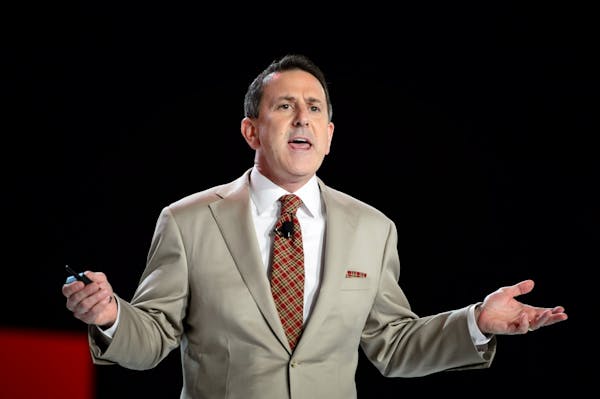Target Corp. will spend $20 million this year to add family restrooms to the rest of its stores to appease critics upset with its policy of allowing transgender people to use the bathroom that aligns with their gender identity.
All but 300 of Target's 1,797 stores already have private, single restrooms in addition to women's and men's restrooms. Most of the stores that don't have that option will be updated by November, and the final couple dozen stores in the chain will have them by March 2017.
The Star Tribune reported in May that the Minneapolis-based retailer would make the restroom renovations, and executives provided additional details in a conference call with reporters Wednesday after Target reported disappointing sales in its second quarter.
"Some of our guests clearly are uncomfortable with our policy," said Cathy Smith, Target's chief financial officer, adding that the company wants to make sure it offers a safe and welcoming environment for all shoppers.
While Smith acknowledged that it's hard to tease apart the factors that affect sales, she said executives don't believe the issue has had a material impact on sales. On Wednesday, Target reported a 1.1 percent drop in comparable sales, its first such slide in two years, and a surprising 2.2 percent decline in store traffic in the May-to-July second quarter.
Smith cited the difficult retail environment as well as a slowdown in electronics sales, disruption to Target's pharmacies during their rebranding to CVS Health, and misfires with its grocery department as the more likely factors for the disappointing results.
Other retailers such as Macy's, Nordstrom and Kohl's have been in a sales slump as consumer spending has moved away from apparel and other general merchandise and toward online websites, such as Amazon, as well as toward travel and entertainment.
In April, Target made waves when it first announced its bathroom policy, saying it was the next iteration of its long history of embracing diversity and inclusion.
"Everyone deserves to feel like they belong," Target said in its initial statement. "And you'll always be accepted, respected and welcomed at Target."
The announcement came after North Carolina passed a law restricting bathroom use in public buildings to a person's biological gender, sparking a nationwide debate.
Target's prominent stance was cheered by some but jeered by others, particularly Republican politicians and conservative groups like the American Family Association. Many people have loudly complained about it on social media. Some critics have said they would boycott Target stores because of it.
In May, Target Chief Executive Brian Cornell defended the company's position in an appearance on CNBC, noting that other decisions Target has made over the years, such as being one of the first retailers to include black models in its ads in the 1960s, haven't always been popular with everyone. Still, in recognition that some people were uncomfortable with the policy, he said the retailer would install family bathrooms in all of its stores that don't already have one to address their concerns.
While Target has been the loudest and taken the most heat for its position, a handful of other retailers such as Barnes & Noble and Starbucks have publicly stated similar policies.
Meanwhile, others such as Wal-Mart and Best Buy have remained silent on the topic.
Kavita Kumar • 612-673-4113

DOGE cuts federal money for upgrades at Velveeta plant in New Ulm

Minnesota factories strained by new steel tariffs and ensuing chaos
'We don't want to lose this mine': Fear sets in for Iron Range miners as shutdown takes hold

UnitedHealth sues the Guardian, alleging defamation in coverage of nursing home care

